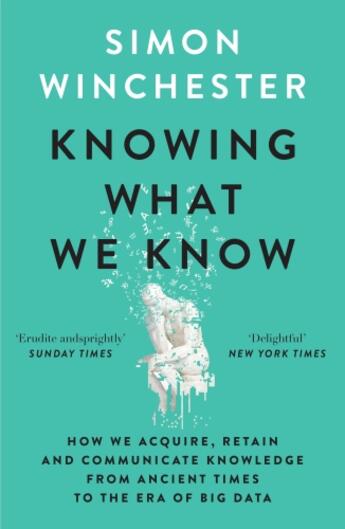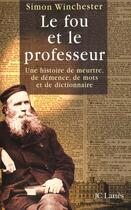-
Date de parution : 25/04/2024
-
Editeur :
William Collins
-
EAN : 9780008484422
-
Série :
(-)
-
Support :
Poche
-
Nombre de pages : (-)
-
Collection :
(-)
-
Genre :
Histoire
-
Thème :
Histoire
-
Prix littéraire(s) :
(-)
Résumé:
''A delightful compendium of the kind of facts you immediately want to share with anyone you encounter'' New York Times ''An ebullient, irrepressible spirit invests this book. It is erudite and sprightly''Sunday Times From the creation of the first encyclopedia to Wikipedia, from ancient museums... Voir plus
''A delightful compendium of the kind of facts you immediately want to share with anyone you encounter'' New York Times ''An ebullient, irrepressible spirit invests this book. It is erudite and sprightly''Sunday Times From the creation of the first encyclopedia to Wikipedia, from ancient museums to modern kindergarten classes-here is award-winning writer Simon Winchester''s brilliant and all-encompassing look at how humans acquire, retain, and pass on information and data, and how technology continues to change our lives and our minds.
With the advent of the internet, any topic we want to know about is instantly available with the touch of a smartphone button. With so much knowledge at our fingertips, what is there left for our brains to do? At a time when we seem to be stripping all value from the idea of knowing things - no need for maths, no need for map reading, no need for memorisation - are we risking our ability to think? As we empty our minds, will we one day be incapable of thoughtfulness?
Addressing these questions, Simon Winchester explores how humans have attained, stored and disseminated knowledge. Examining such disciplines as education, journalism, encyclopedia creation, museum curation, photography and broadcasting, he looks at a whole range of knowledge diffusion - from the cuneiform writings of Babylon to the machine-made genius of artificial intelligence, by way of Gutenberg, Google and Wikipedia to the huge Victorian assemblage of the Mundaneum, the collection of everything ever known, currently stored in a damp basement in northern Belgium.
Studded with strange and fascinating details, Knowing What We Know is a deep dive into learning and the human mind. Throughout this fascinating tour, Winchester forces us to ponder what rational humans are becoming. What good is all this knowledge if it leads to lack of thought? What is information without wisdom? Does Rene Descartes'' ''Cogito, ergo sum''-''I think, therefore I am'', the foundation for human knowledge widely accepted since the Enlightenment-still hold?
And what will the world be like if no one in it is wise?
Donner votre avis















